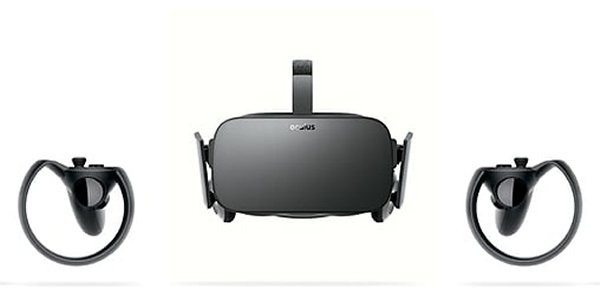Facebook Confirms The Future Of Oculus

Facebook hasn't had the easiest of times in the world of virtual reality. The Oculus Rift was supposed to usher in a new age of interactivity using VR, however, things didn't quite go as well as Facebook had hoped. Now the future of Oculus is being questioned by some onlookers, but Facebook has confirmed what the future of will be for the Oculus.
In a report by TechCrunch, things are looking a little shaky now that one of the co-founders of Oculus has parted ways with the company. Brendan Iribe, the former CEO and co-founder of Oculus, announced that he was leaving Facebook. The report initially stated that this came after Facebook quietly cancelled the Rift 2, the supposed next-generation virtual reality headset that the company was releasing for PC gamers.
A representative for Facebook told TechCrunch in a vague statement -- one that neither confirmed nor denied the cancellation of the Rift 2 -- that Facebook is still investing heavily in VR and in the Rift product lineup under the Oculus brand. However, the statement fails to confirm if there will be any further endeavors pursued specifically regarding the Rift 2 unit.
Supposedly, it was the shaky vision of the future for the Oculus Rift that caused Iribe to leave in the first place. The article notes that there was a falling out between Iribe and the higher ups at Facebook, since both had different visions of what they wanted from the Rift moving forward. Iribe wanted to keep it based around being a PC accessory, and leveraging the power of the PC to improve the unit's overall functionality and usability.
Facebook's higher-ups apparently wanted a device that was more portable and autonomous from the PC platform, similar to what was developed with the Oculus Quest, a lightweight version of the Rift that you could use away from a dedicated desktop. Of course, portability comes at a cost, and if you want to keep the costs low then it means something has to be sacrificed, such as resolution, rendering power, weight, or size.
The problem is that the mainstream consumer market doesn't seem particularly interested in portable VR gaming at the moment, much in the same way that they didn't seem particularly interested in stereoscopic 3D gaming.
I suppose the major problem with virtual reality at this point is: where do you go? Iribe could be right insofar that pursuing higher-end endeavors could reap positive rewards for the VR ecosystem by tackling more realistic looking games, or better full-body control functions running on a dedicated rig. But then again, Facebook's executives could be right, and maybe the future is in portable AR/VR gaming? Either direction is a surefire gamble, and there's always going to be the risk of failure; not every company can be Nintendo hitting home runs out of the park with a unique device like the Switch.
CINEMABLEND NEWSLETTER
Your Daily Blend of Entertainment News
One thing is for sure, Facebook is scaling back on non-essential services running on the Rift that don't seem to be growing much in terms of market reach or profitability. More specifically, The Verge is reporting that Facebook is shutting down the video/movie rental service for non-VR movies through the Oculus Video portal.
I think the company seems to be at an impasse where it's looking to find a proper direction for the Oculus brand, and a stable future for virtual reality.
Staff Writer at CinemaBlend.

My Favorite Thing About Sony’s Big Spider-Man 4 Title Announcement Was Tom Holland Joking About How He Knows Not To Give Away Spoilers Anymore

I'm Super Excited After Getting A Early New Look At 28 Years Later, But I'm Shocked To Learn That A Full Trilogy Isn't Guaranteed

Jennifer Love Hewitt Just Asked ‘What Did You Do Last Summer?’ In First Footage From I Know What You Did Last Summer, And I Am So All In







